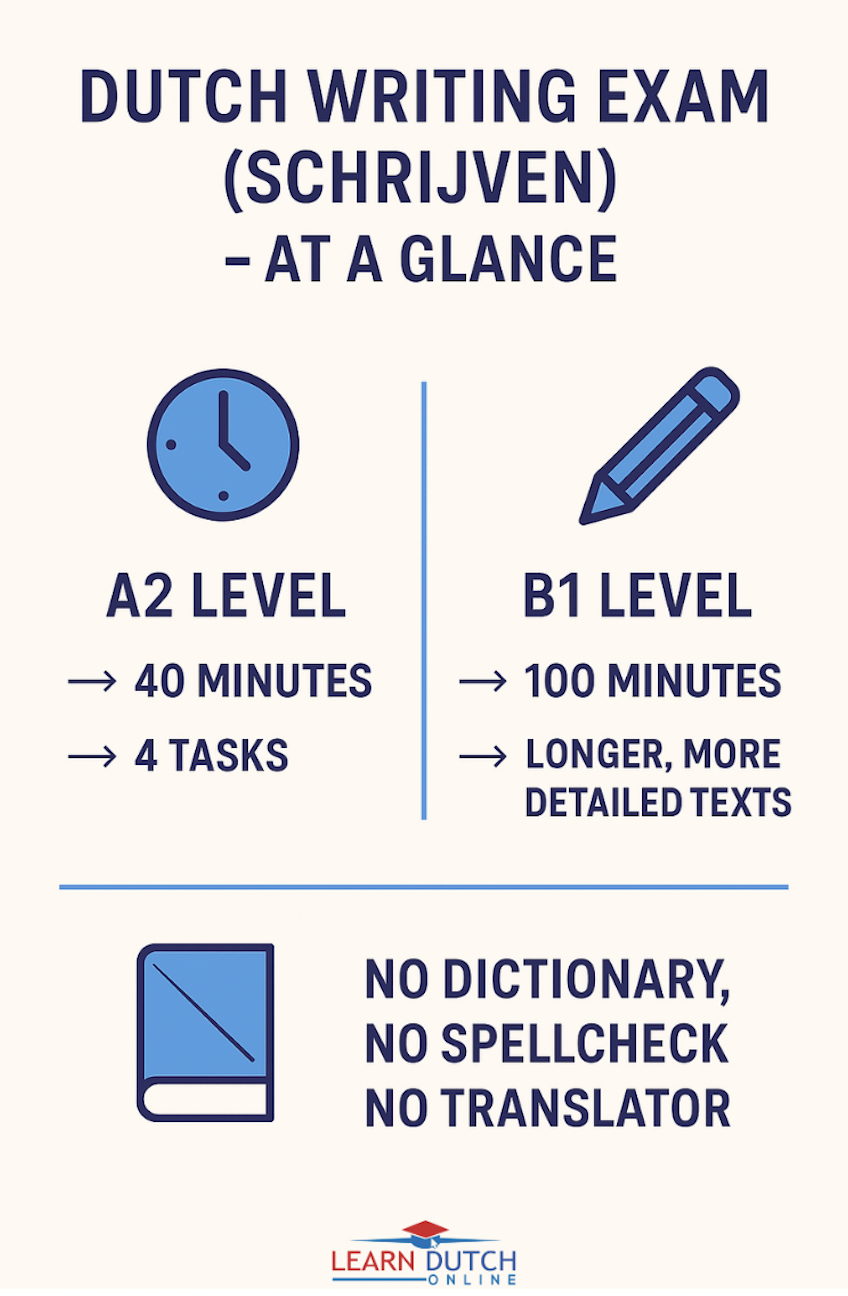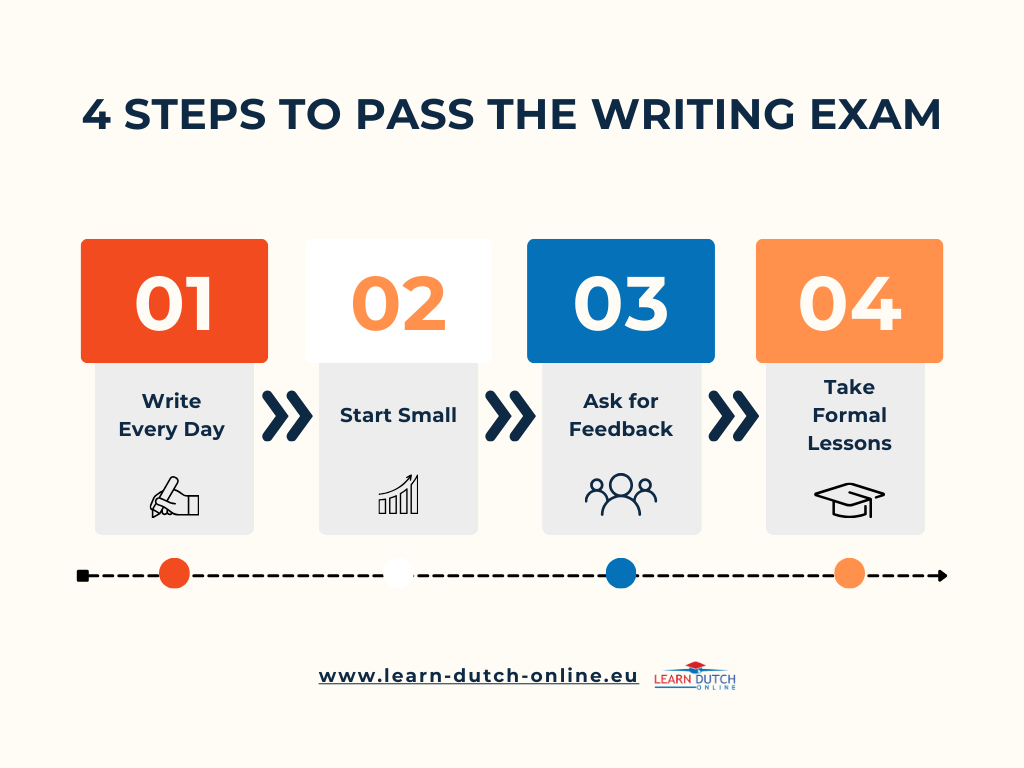How to Pass the Dutch Writing Exam for the Civic Integration - Guide 2025
Are you preparing for the Dutch Civic Integration Exam (Inburgeringsexamen) and feeling nervous about the writing section? You're not alone. Many expats find the writing exam the most challenging because you must write clear, correct Dutch without a dictionary, grammar checker, or extra time to think.
With the right preparation, you can pass this exam confidently! This guide explains everything you need to know about the Dutch writing exam (schrijven) and how to prepare effectively.
Why the Writing Exam Matters
Passing the writing exam isn't just about getting your inburgeringsdiploma. It's about being able to:
- Send an email to your child's teacher.
- Reschedule a dentist's or doctor's appointment.
- Send a formal request to the gemeente (municipality)
- Improve your chances for a better job and create better opportunities, since multi-lingual employees are now more valuable than ever.
In other words, writing in Dutch at the A2 or B1 level helps you live, work, and connect more effectively in daily life.

Exam Format and What to Expect
The writing exam is a paper-based test of about 40 minutes (A2 level) and includes 4 tasks:
- Filling in a form (for example, signing up for a gym).
- And three short, everyday texts, such as:
- Ask your neighbor to water your plants while you're on holiday
- Writing an invitation to a birthday party.
- Emailing your doctor to change an appointment
- Complaining politely to the municipality about a parking ticket.
At B1 level, expect longer, more detailed writing tasks lasting around 100 minutes.
Each task tests your ability to write clearly, correctly, and politely in Dutch, all without digital aids like spellcheckers.

Recent Exam Updates for 2025
The exam format for writing remains the same, with either A2 or B1 level required depending on your situation. Keep in mind:
- The exam fee is €50 per section, with the option to retake individual parts.
- Passing the writing exam is essential for your civic integration diploma.
- Preparation resources now include AI-powered tools and more online practice exams, offered by DUO, and Learn-Dutch-Online can assist with personal face-to-face assistance to really help you get ready.
How to Prepare for the Writing Exam
1. Write Every Day
Write at least one short text in Dutch every day, such as emails to a colleague or a message to a friend. Avoid using translation or spellcheck tools, and focus on expressing yourself naturally. Then, check for errors and ask for feedback from native speakers. Learning from mistakes is essential in the beginning.
2. Start Small, Then Grow
Use the "crawl, walk, run" principle. Don't try to write long essays immediately, but first, master short, clear sentences, like: "Beste buurman, kunt u mijn planten water geven tijdens mijn vakantie? Bedankt!". Focus on clarity before complexity, and build from there.
3. Ask for Feedback
Native speakers or teachers can quickly show you mistakes you don't see yourself. Feedback helps you improve faster and avoid common errors.
4. Take Formal Lessons
Structured courses make a big difference. Our beginner (A2) and intermediate (B1) classes guide you through Dutch grammar and spelling. And our Preparation Inburgeringsexamen focuses on exam-specific writing with direct teacher feedback to guide you every step of the way.
Contact us for more information and to sign up for your next course.

Final Tips
Start your preparation early; it can take 6 months of consistent study to pass all exam parts.
Remember that failing one section means you can retake just that section without redoing the entire exam.
Practice under timed conditions to simulate the exam environment.
Contact us today and start preparing with confidence!
